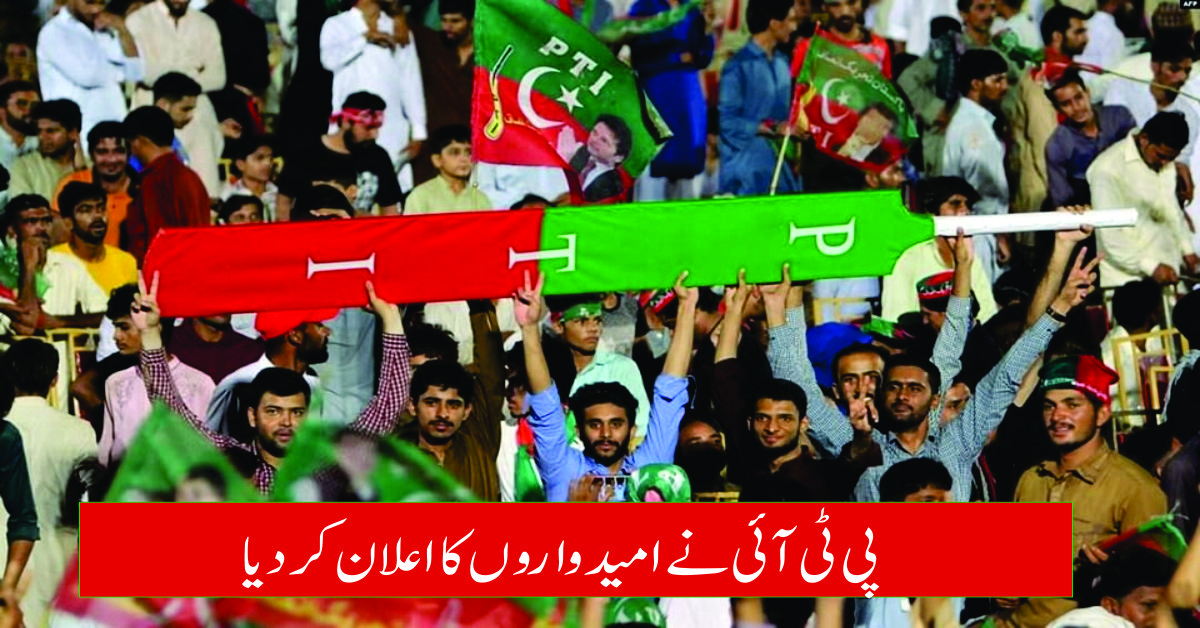Are young voters a threat to ‘electables’ in Election 2024?
In electoral politics, the term 'electables' is used for influential candidates.

Political parties are fielding candidates for the general elections to be held on February 8 in Pakistan, but the major political parties still prefer candidates who have been successful in elections for decades. In electoral politics, the term ‘electables’ is used for such candidates.
‘Electables’ are said to be guaranteed success if they join any political party. The families of the southern, central and northern regions of Pakistan’s Punjab province, Khanwaday, Gadishahi, important political families are also counted among the electables.
Similarly, the landlords of the rural areas of Sindh province, the chiefs of Balochistan, and the influential figures of the tribal areas of Khyber Pakhtunkhwa are also included in this list.
If we look at the general elections held in Pakistan, a large number of electables have been successful and their role in government formation has been important.
However, due to the end of the ‘two-party system’ in Pakistan, i.e. the popularity of Pakistan Muslim League (N) and Pakistan People’s Party, Pakistan Tehreek-e-Insaf (PTI) gained popularity and according to some experts, after the popularity of PTI, the young voter has also been mobilized.
Observers say that voter turnout for the general elections has increased and the role of young voters will be important.
According to the Election Commission, 57 million young voters between the ages of 18 and 35 are eligible to vote in the upcoming elections.
Is the influence of electables decreasing?
Senior journalist and analyst Iftikhar Ahmed says that currently there is no research that shows that young voters have played an important role in the defeat of the electables, but the electables may need the support of young voters in the upcoming elections.
A large number of young voters exercised their right to vote during the last two elections. Especially when in 2013 the PTI ran a vigorous election campaign which resulted in long queues of young voters at the polling stations, but a large number of electables were also successful in the same elections.
‘Party votes do not matter much in rural areas’
Senior journalist and analyst Sohail Waraich says that electables do not matter much in urban constituencies and party votes do not matter much in rural constituencies. So there is a difference between the two. But what will happen in Pakistan on election day cannot be predicted.
Sohail Waraich says that in the past, we have been seeing that in the 2018 elections, PTI’s young candidate Salman Naeem defeated Shah Mehmood Qureshi, a tall politician and who was included in the list of ‘electables’. So it is too early to say anything about the atmosphere on election day.
According to him, the vote bank of urban constituencies is apparently inclined towards PTI. But it will be seen whether the voter comes out on the election day or not.
‘Political division will affect young voters too’
Senior journalist and analyst Mujibur Rahman Shami says that young voters are spread across the country, including rural and urban areas. There are educated and less educated among them, so the political division in the society will inevitably affect the young voters as well.
It cannot be said that all youths are thinking the same way and will react in the same way on election day. According to him, 30 percent of the youth may vote differently from their parents or elders, but it cannot be said that all the youth voters will vote against the electables.
Mujibur Rahman Shami says that in rural areas there is still influence of landlords which is passed down from generation to generation which leads to the strength of electables.
According to him, until the political parties are more organized in the rural areas, the electoral politics will continue to be dominated by electables.
According to analyst Ifthar Ahmed, “There is no doubt that the trend of young voters is different from their elders and they have been arguing about this issue even within their families, but currently it does not seem that the politics of the young ‘electables’ will change.” can harm.”
He said that in the 1970 elections, the role of the youth came to the fore. At that time, right and left wing politics were on the rise in the educational institutions of the country, which was reflected in the elections, but during the era of former military dictator Zia-ul-Haq, when student organizations were banned, then the role of the youth in politics also decreased. .
Iftikhar Ahmad said that PTI claims that the youth will play a decisive role in the elections, but until an authentic research comes out, this cannot be accepted.
According to Mujibur Rahman Shami, political parties need electables, while electables also need political parties because they get the party’s vote and it becomes easier for them to win the election.
